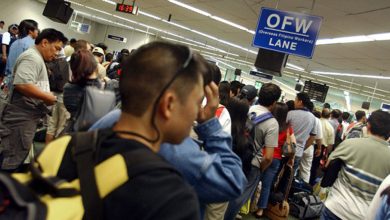MANILA: The Philippines is likely to see 6.5 percent increase in salaries next year, a global solutions company Willis Towers Watson report has pointed out.
The steady rise in salaries comes as companies in the Philippines are also focusing on incentivizing employees with critical skills, ABS –CBN News quoted Vangie Daquilanea, data services practice lead at Willis Towers Watson, as saying.
“These can be in the form of a ‘hot skills’ allowance, retention bonuses and training/education programs that will keep their critical talents engaged,” Daquilanea reportedly said.
The results of the study released Wednesday revealed that salaries across Asia Pacific are projected to rise 5.9 percent in 2017, up from the 5.8 percent growth this year, the report said.
The slight increase reflects broader downward pressure on salary increase budgets in the region, as employers seek to keep costs down amid slowing economic growth, the study showed.
“Back around 2012 and 2013, companies in Asia pumped a lot of money into their salary budgets and drove salaries up, but they didn’t see the revenues rise in tandem, so it made such increases unsustainable. Now these companies are being much more prudent,” Sambhav Rakyan, Asia Pacific data services practice leader at Willis Towers Watson, reportedly said.
The highest salary increases in next year will be in Pakistan (10.2 percent), Bangladesh (10 percent) and India (10 percent). Real term-growth will be 5 percent for Pakistan, 4.2 percent for Bangladesh and 4.3 percent for India, said the news portal.
Vietnam will see the highest base salary increases at 9.6 percent in East Asia and South East Asia before inflation is factored in. It is followed by Indonesia (9 percent), and China (7 percent). Japan is projected to have the smallest growth at 2.3 percent.
Hong Kong and Singapore, meanwhile, are set to see similar overall salary growth at 4 percent, but factoring in inflation, salary increases in real terms are set to be much lower in Hong Kong (1.7 percent) than Singapore (3.2 percent), reported ABS-CBN News.






